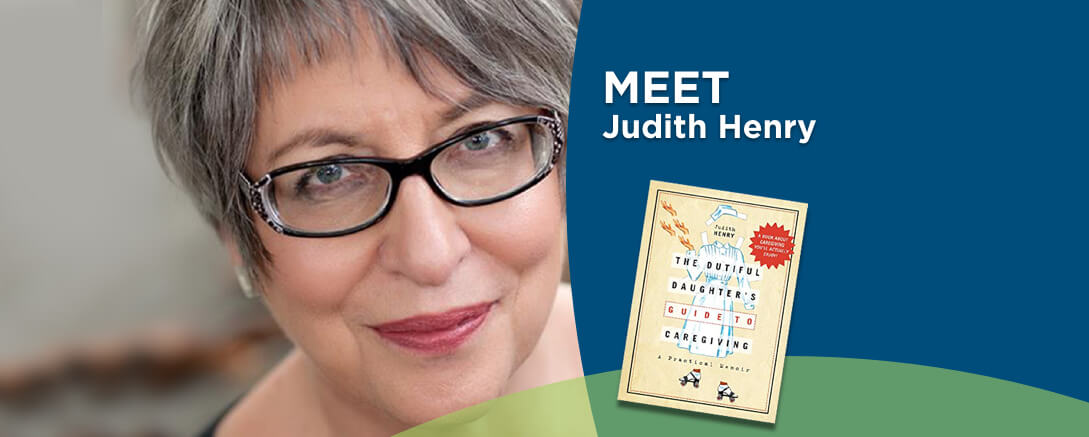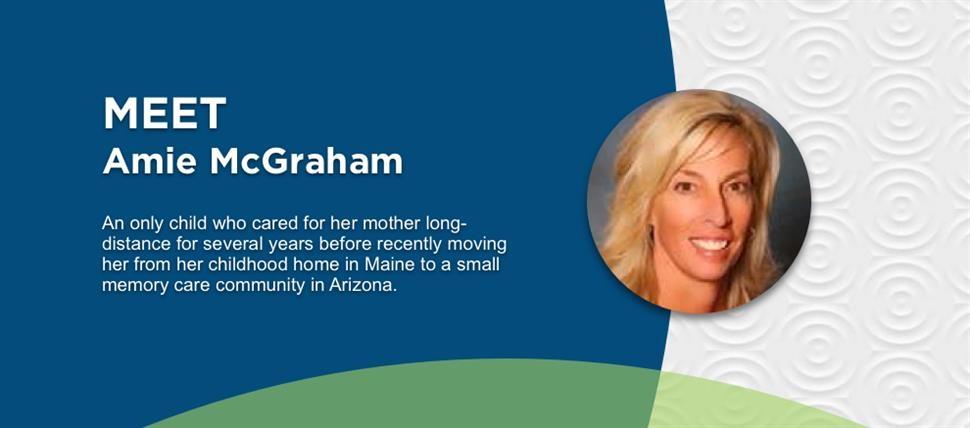Searching for Senior Care: Two Caregivers Share Their Stories

Finding assisted living for your loved one is a deeply emotional journey. As a caregiver, you may be feeling guilty, disappointed, nervous, or even grief-stricken — and all those feelings are completely normal.
You are not alone in this process, and many families are facing similar circumstances with their loved ones right now. To help you navigate the process of finding assisted living, we spoke with two caregivers that have successfully made this transition to get their stories and advice.
Meet Judith Henry, former family caregiver and author of The Dutiful Daughter’s Guide to Caregiving.
When both of Judith Henry’s parents became ill in 2007, even her reputation as a pragmatist, planner, and dutiful daughter (her father’s term) couldn’t prepare her for what lay ahead — a long list of concerns that included:
- Navigating an unfamiliar healthcare system
- Addressing financial and legal issues
- Dealing with stress and family dynamics
- Choosing a rehab center
- And ultimately, making hospice arrangements.
We asked Judith to share some of her insights on the process of finding assisted living. Here are her top 5 tips:
- Start with recommendations from people you know — both friends and co-workers. Healthcare personnel can be another resource.
- Find out if the company or facility can address your friend or family member’s particular needs, such as physical therapy, or memory care.
- Ask about staff experience and turnover. Are they knowledgeable about working with an older population? How long have they worked for the organization?
- If possible, don’t make any decision without a personal meeting or walkthrough by you or someone you trust.
- Even with all your due diligence, understand and accept that there is rarely a perfect option.
We also asked Judith what she believes most people misunderstand about the search process. Here’s her take: “Finding appropriate senior care or housing takes time. Waiting until a critical event occurs to begin the process can result in a serious mismatch for your friend or family member’s level of need and care.”

Meet Amie McGraham, an only child who cared for her mother long-distance for several years before recently moving her from her childhood home in Maine to a small memory care community in Arizona.
Amie shares her perspective as a long-distance caregiver turned full-time senior care searcher and cross-country-move coordinator:
Four years ago, when I shifted careers from corporate executive to full-time family caregiver, I vowed I would never move my mother from her home of fifty years. Recently, I was faced with the harsh reality of Alzheimer’s: she needed more care than I could give.
Being a planner, I had a Plan B. And C, D, and E, each of which included detailed budgeting and logistics. A memory care facility was the last on the list, aptly designated “Plan F.” To me, it stood for failure. But neither I — nor any of the other options on my list — could resolve the relentless, rapid progression of Alzheimer’s: wandering, sundowning, depression and anxiety, to name a few of the most difficult symptoms. Every manifestation of the disease moved me further away from the ability to be a loving daughter and wife.
I toured a dozen care homes from Maine to Arizona, checklist and Kleenex box in hand. I put the facilities in a spreadsheet, comparing costs, care, activities, and amenities. I sought advice from other caregiver friends who’d been in my shoes. After six months of searching, the right decision came from the heart, not an elegant dining room or elaborate “person-based” care model. As scary as it was for both of us, I moved my mother across the country to a memory care home five minutes from the house where my husband and I have lived for the past fifteen years. And now I visit her every day in her new “home,” a cozy suite with a living room, bedroom and her first-ever walk-in closet.
Family support during difficult transitions
Finding assisted living can be wrought with emotion for caregivers. As we learned from Judith and Amie’s stories, it’s important that you balance your pragmatic priorities with the deeply emotional aspects of finding the right facility. At the end of the day, it’s not about being the perfect caregiver — it’s about doing the best you can for your loved one to keep them safe and happy.


